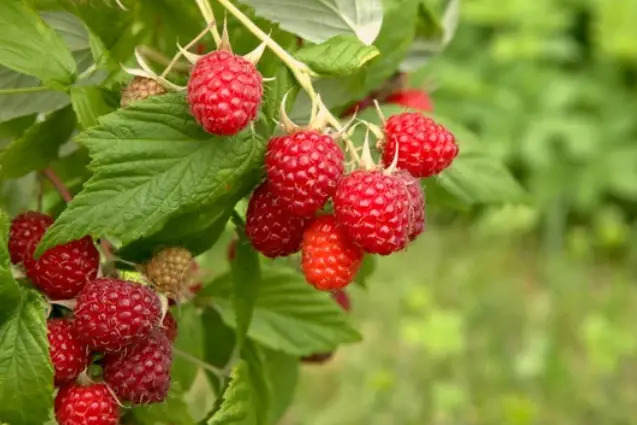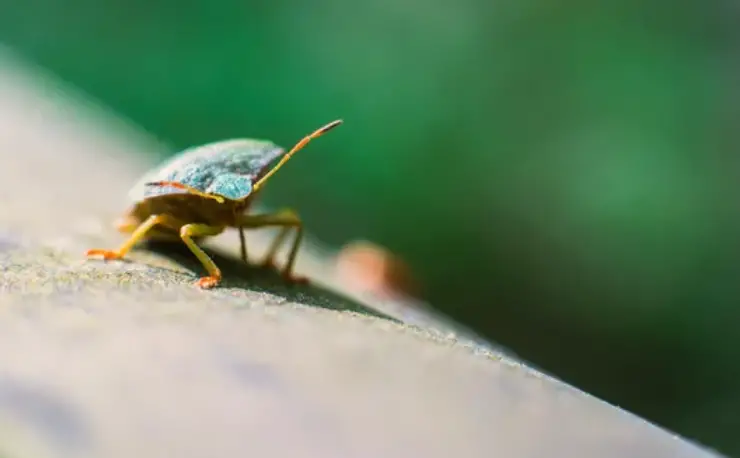Will Vinegar Kill Vegetable Plants? Debunking the Myth
Will Vinegar Kill Vegetable Plants?
Vinegar is a common household item, known for its versatility in cleaning, cooking, and even as a potential weed killer.
In recent years, there has been a growing interest in using vinegar to control weeds in gardens and vegetable plots.
However, a significant question arises: can vinegar kill vegetable plants too?
In this blog post, we will go into the potential effects of vinegar on vegetable plants, its uses, limitations, and alternative methods for weed control.
The Myth of Vinegar as a Vegetable Plant Killer

The idea that vinegar can kill vegetable plants might stem from its reputation as an effective weed killer.
Many gardeners have turned to vinegar as an alternative to chemical herbicides, hoping to control unwanted plants while sparing their precious vegetables.
While vinegar can indeed be an effective weed control tool, it’s essential to understand the nuances and potential risks when using it around your vegetable garden.
Vinegar Types and Concentrations
Not all vinegar is created equal, and the type and concentration of vinegar you use can significantly affect its impact on your vegetable plants.
Commonly, gardeners opt for distilled white vinegar or apple cider vinegar.
Distilled white vinegar typically contains 5% acetic acid, while apple cider vinegar may have lower concentrations.
It is important to note that a higher concentration of acetic acid is more effective at killing weeds, but it also poses a higher risk to your vegetable plants.
Acetic acid is a potent desiccant, which means it can dry out and damage plant tissues.
In a garden setting, this can be problematic for both weeds and the vegetables you want to grow.
Effects of Vinegar on Vegetable Plants
The impact of vinegar on vegetable plants depends on several factors, including the concentration of acetic acid, the type of vegetable, and the stage of growth.
High concentrations of acetic acid can have the following effects:
- Root Damage: When vinegar is applied directly to the soil, it can harm the root systems of nearby vegetable plants. The roots may become stressed or even killed by the high acidity, leading to stunted growth or plant death.
- Leaf Damage: Spraying or splashing vinegar on the leaves of vegetable plants can result in leaf burn. The acidity can strip the protective waxy layer from the leaves, making them more vulnerable to pests, diseases, and environmental stress.
- Soil pH Imbalance: Excessive use of vinegar in the garden can disrupt the soil’s pH balance, making it more acidic. Most vegetables prefer a slightly acidic to neutral pH range, so a significant decrease in soil pH can negatively affect their growth.
- Indirect Damage: Even if the vinegar does not come into direct contact with the plants, its fumes can potentially harm them. Sensitive vegetables like tomatoes and peppers can be affected even if they are not visibly sprayed.
Best Practices for Using Vinegar in the Garden
If you decide to use vinegar as a weed control method while minimizing the risk to your vegetable plants, here are some best practices to follow:
- Dilution: Consider diluting vinegar with water to lower its acidity. A mixture of one part vinegar to three parts water can help reduce its impact on your vegetables.
- Precise Application: Apply the diluted vinegar mixture directly to the weeds you want to control, making sure to avoid contact with your vegetable plants.
- Target Weeds Carefully: Be selective when applying vinegar to weeds, and avoid using it in windy conditions to prevent drift onto your vegetables.
- Apply at the Right Time: Apply vinegar when the weather is warm and dry, as it is most effective under these conditions. Be cautious when using vinegar on a rainy day, as it may wash away and affect your vegetable plants.
- Spot Treatment: Consider spot-treating weeds with vinegar rather than applying it over a large area. This approach minimizes the risks of unintended damage to your vegetables.
- Monitor and Adjust: Keep a close eye on your vegetable plants after using vinegar to ensure they aren’t negatively affected. If you notice any signs of damage, discontinue its use.
Alternatives to Vinegar for Weed Control
While vinegar can be a useful tool for controlling weeds in your vegetable garden, it’s not the only option available.
Several alternative methods are equally effective without the potential risks to your vegetable plants:
- Mulch: Mulching your garden beds with organic materials like straw, wood chips, or leaves can effectively suppress weeds while also improving soil quality.
- Hand Weeding: Regularly inspect your garden and manually remove weeds as they appear. This method is labor-intensive but highly precise and safe for your vegetables.
- Herbicide Alternatives: Consider using organic herbicides made from natural ingredients like corn gluten meal or clove oil. These products can help control weeds without harming your vegetables.
- Landscape Fabric: Installing landscape fabric or weed barrier fabric under your mulch can provide an additional layer of weed suppression.
- Mechanical Weed Control: Employ garden tools like hoes, weed pullers, or cultivators to physically remove weeds from your garden.
Conclusion
In conclusion, while vinegar can be an effective weed control method, it comes with certain risks when used in a vegetable garden.
The concentration of acetic acid in vinegar, the type of vegetable, and the timing of application all play crucial roles in determining its impact on your crops.
If you decide to use vinegar, dilution and precise application are essential to minimize harm to your vegetables.
Alternatively, there are numerous safe and effective methods for weed control in vegetable gardens, such as mulching, hand weeding, organic herbicides, landscape fabric, and mechanical weed control.
The key is to choose the method that aligns with your gardening goals, environmental concerns, and the specific needs of your vegetable plants.
Ultimately, the myth that vinegar will invariably kill vegetable plants isn’t entirely accurate, but it underscores the importance of careful, informed weed control practices to ensure a bountiful and healthy harvest.








